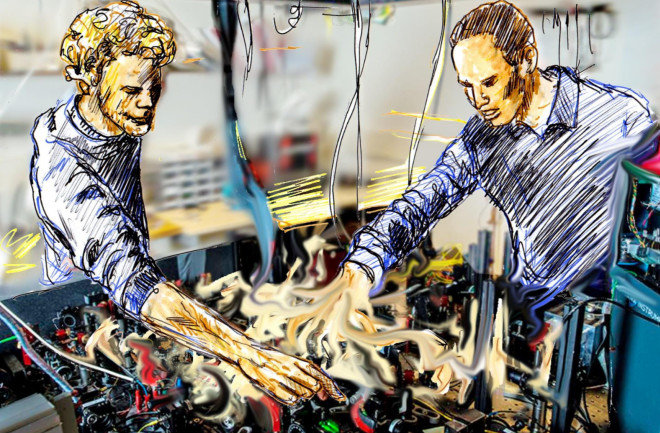Recently, physicist Sean Carroll made my head spin with his explanation of the Many Worlds Interpretation of quantum mechanics. In this view, the world around us is just one version of many, many possible realities. Each time an event occurs with more than one possible outcome, reality splits into different versions. The result is that there are endless other realities containing endless other versions of you.
The idea behind the Many Worlds Interpretation originated with physicist Hugh Everett III in the 1950s. Although it sparked little serious discussion at the time, Many Worlds has recently attracted growing support among theoretical physicists as a way to make sense of what happens during measurements of quantum systems. Out of many possible outcomes, we can observe that only one actually happens. In the Everettian view, all of the other possible outcomes happen as well — they just branch off into other realities.
Not everyone finds the Many Worlds Interpretation useful or convincing, however. While I was researching this topic, I got in contact with physicist Chris Fuchs at the University of Massachusetts at Boston. He had so many outspoken things to say about quantum mechanics that I decided to share his comments in full. In particular, he offers a starkly different way of looking at quantum mechanics, called Quantum Bayesianism or QBism.
Fuchs put together a "picture book" explaining his ideas (it's the source of the images in this article). You can read about them in detail here and here. Or you can simply read on, since Fuchs is an able tour guide to his ideas about a worldview in which everyone — not just physicists — continually participates in the creation of a single reality.
Q: You’ve written critically about the Many Worlds (or Everettian) Interpretation of quantum mechanics. What are its main shortcomings?


